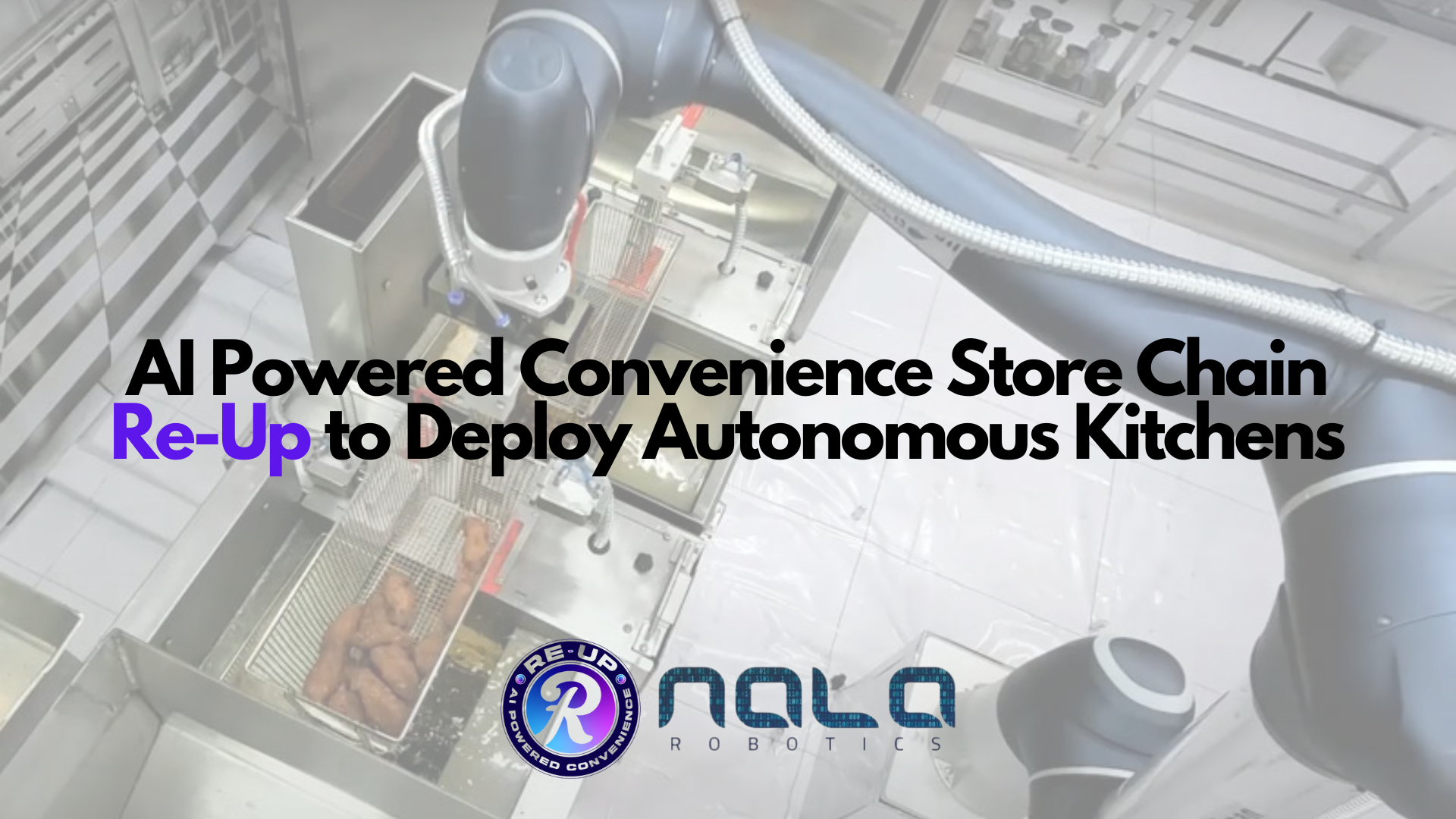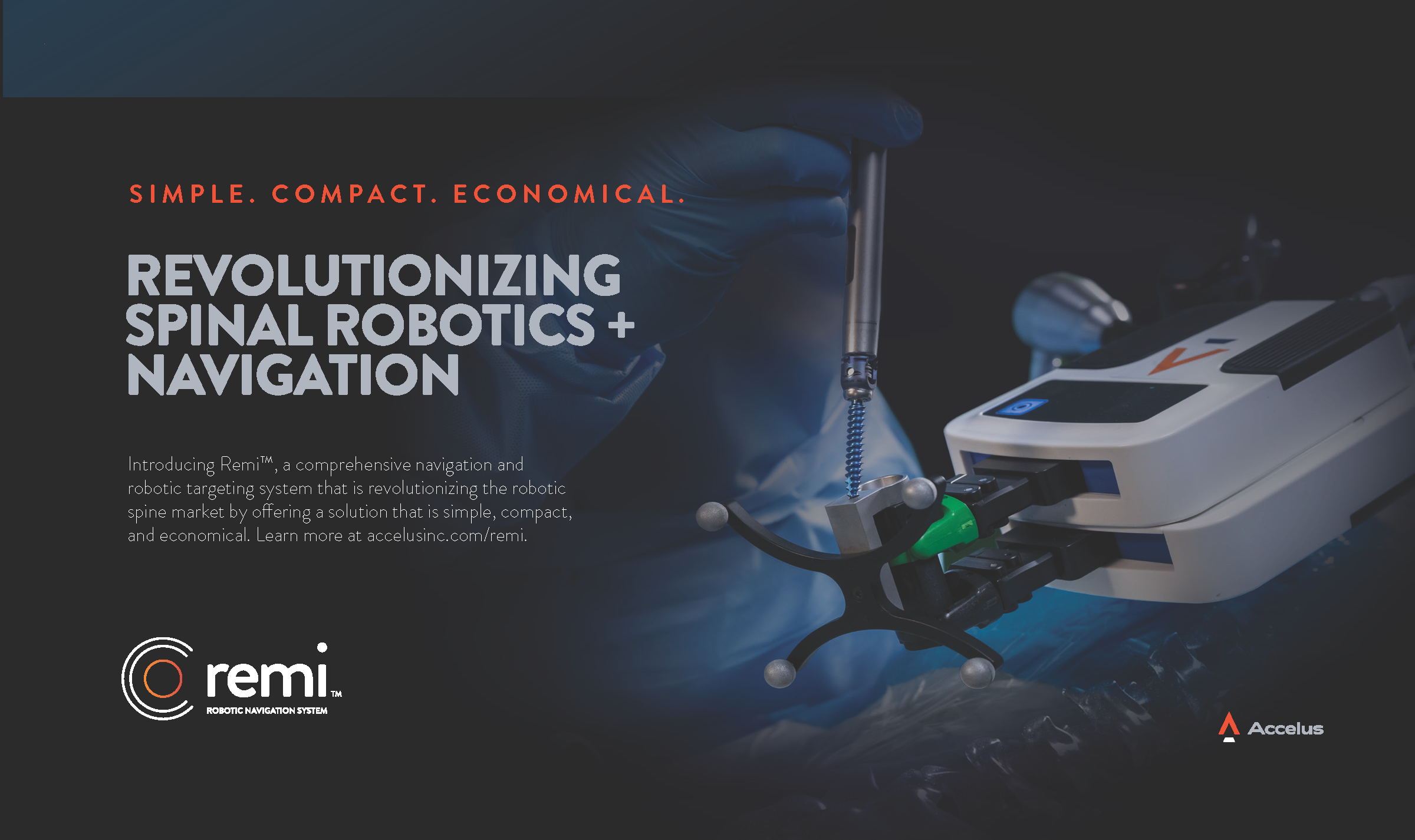AI Powered Convenience Store Chain Re-Up to Deploy Autonomous Kitchens
Read Time 4 MinutesRe-Up, the world’s first AI-powered convenience store, redefining gas stations with cutting-edge technology, announced that the company will be installing autonomous robotic chefs at a variety of locations powered by Nala Robotics, an AI technology company revolutionizing the culinary industry.
Re-Up is a gas station and convenience store retail operator, focused on elevating customer experience through the integration of AI-powered technology and design. Re-Up is elevating the way people re-fuel, re-charge, re-fill, re-up, answering a pent up demand for a modern, clean, and healthy convenience retail experience. With more than 30 stores in the pipeline, strategically positioned for accessibility and convenience across Florida, Mississippi and Louisiana, Re-Up is led by a dynamic team, contributing unique expertise in the sectors of retail operations, technology, and real estate.
Nala Robotics is an AI technology company disrupting the culinary industry with the introduction of The Wingman, Pizzaiola, Nala Chef, Bowl Bot and Sandwich Bot. Its fully automated, customizable robots use machine learning to cook infinite recipes replicated with exact precision anytime, anywhere. The company’s autonomous robotic solutions are ideal for multiple cuisines including American, Chinese, Indian and Thai. Based in Arlington Heights, Illinois, Nala Robotics has offices in California, India and Ukraine.
The Wingman by Nala Robotics is an autonomous fry station that can easily be added or configured to any restaurant or commercial food service operation. Re-Up will leverage Nala Robotics’ advanced artificial intelligence technology to enhance its food service offerings, enabling customers to enjoy freshly prepared, fully customizable, fried chicken, french fries and other menu items on demand, quickly, easily and without human intervention.
“As the c-store for the new generation – offering clean and healthy alternatives to the traditional convenience retail experience, we are thrilled to partner with Nala Robotics,” said Michael Salafia, Founder and Managing Director of Re-Up. “By harnessing the power of AI, we are able to provide our customers with convenient, personalized, and safe shopping and dining experiences. We believe this groundbreaking concept will revolutionize the way people shop and fuel up.”
The announcement comes on the heels of Re-Up’s grand opening of its inaugural location in Melbourne, Florida, located just a mile and a half from Melbourne Orlando International Airport, at 601 South Babcock Street, Melbourne, Florida.
According to U-Haul data, the Palm Bay-Melbourne market netted the largest number of movers in one-way U-Haul® equipment last year, dominating the US city growth trend. Re-Up currently has 9 open stores and more than 30 in the pipeline.
“Our expansion efforts at Re-Up are proceeding at an accelerated pace. We aim to procure 25-30 additional stores by the end of 2024 and more than 200 stores in the coming years,” said Narendra Manney, Co-Founder & President of Re-Up. “The integration of robotics kitchens stands as a pivotal strategy in our modernization initiative, enabling us to enhance operational efficiency and deliver seamless services while upholding unwavering quality standards around the clock.”
Nala Robotics’ AI-enabled virtual kitchens are equipped with advanced sensors, precision cooking mechanisms, and machine learning algorithms, allowing its robotic chefs to autonomously prepare a wide range of menu items with unparalleled consistency and efficiency. In addition to on-premises ordering via multi-modal kiosk, restaurants can create virtual storefronts for remote transactions through a website or online food ordering and delivery platform. The integration of The Wingman into Re-Up’s convenience stores will enable faster service, reduced wait times, and enhanced food quality, improving the overall customer experience.
“Our agreement with Re-Up underscores both companies’ commitment to innovation and customer satisfaction and will deliver better outcomes for both operator and consumer,” said Ajay Sunkara, CEO of Nala Robotics.
“The Wingman doesn’t get sick, can work around the clock and can cook any dish efficiently all the time, improving on quality and saving on labor costs. At the same time, customers get to choose from an assortment of great-tasting food items just the way they like it.”
Re-Up’s pillars consist of clean, safe, healthy, and modern; the ultimate elevated customer experience. Built on multigenerational retail expertise, Re-Up prioritizes exceptional customer service, on trend merchandising, and modern store layouts, ensuring a seamless and enjoyable experience for every patron. Re-Up offers nutritional food options, free WiFi, and cafe seating.
To learn more about Re-Up, visit www.reupfuel.com


